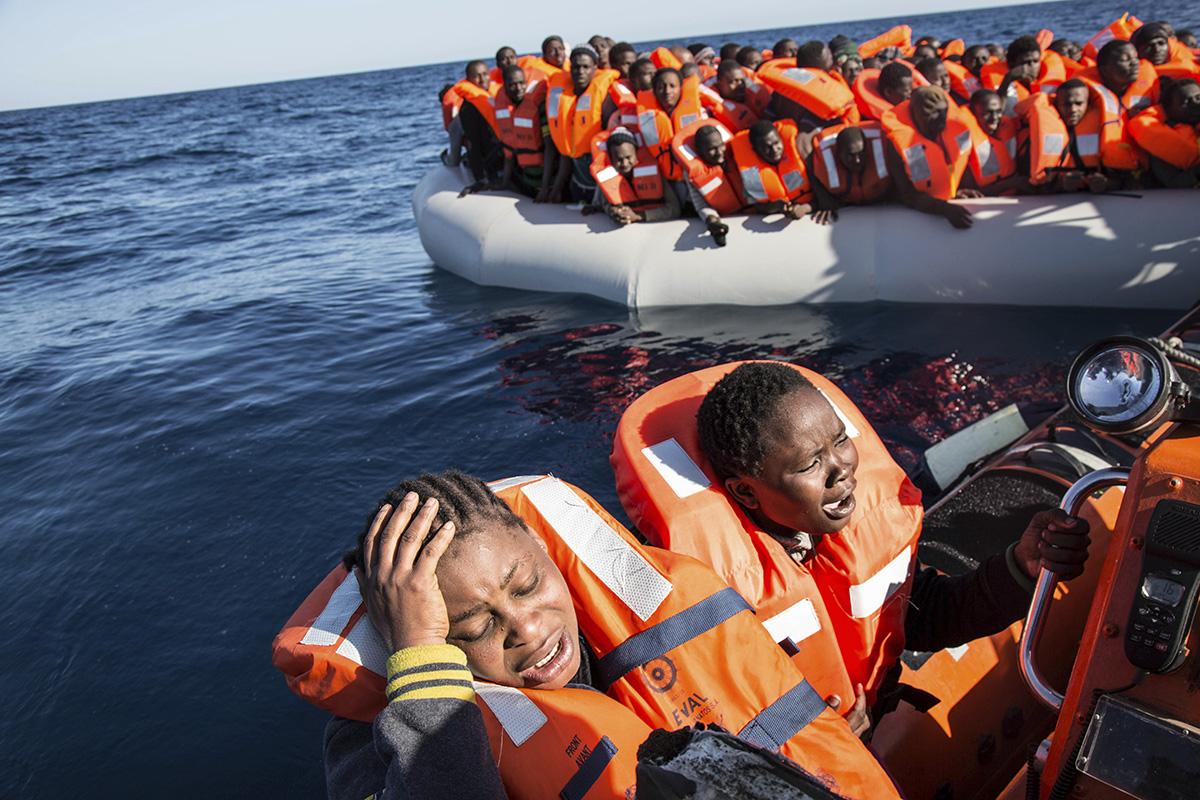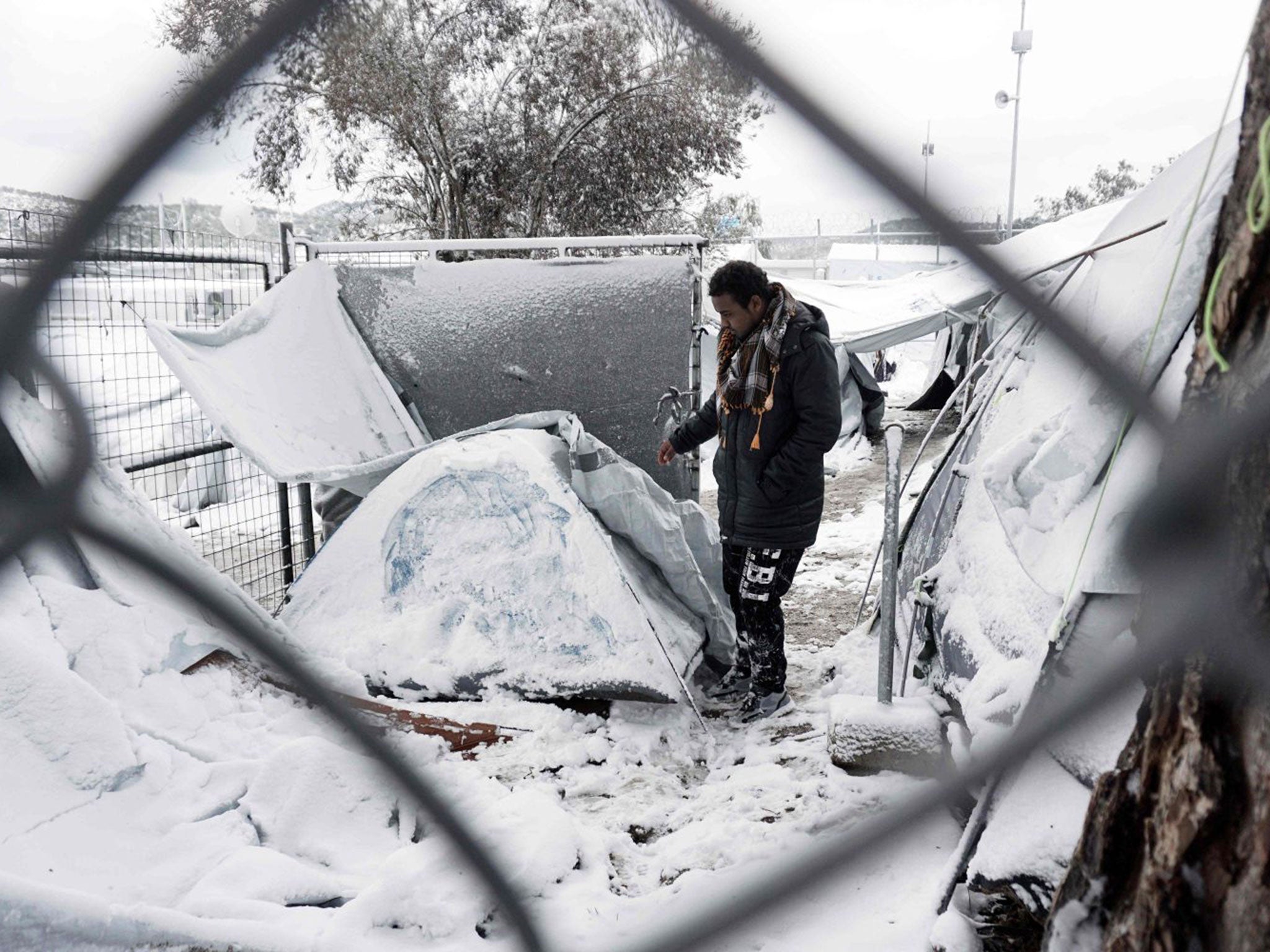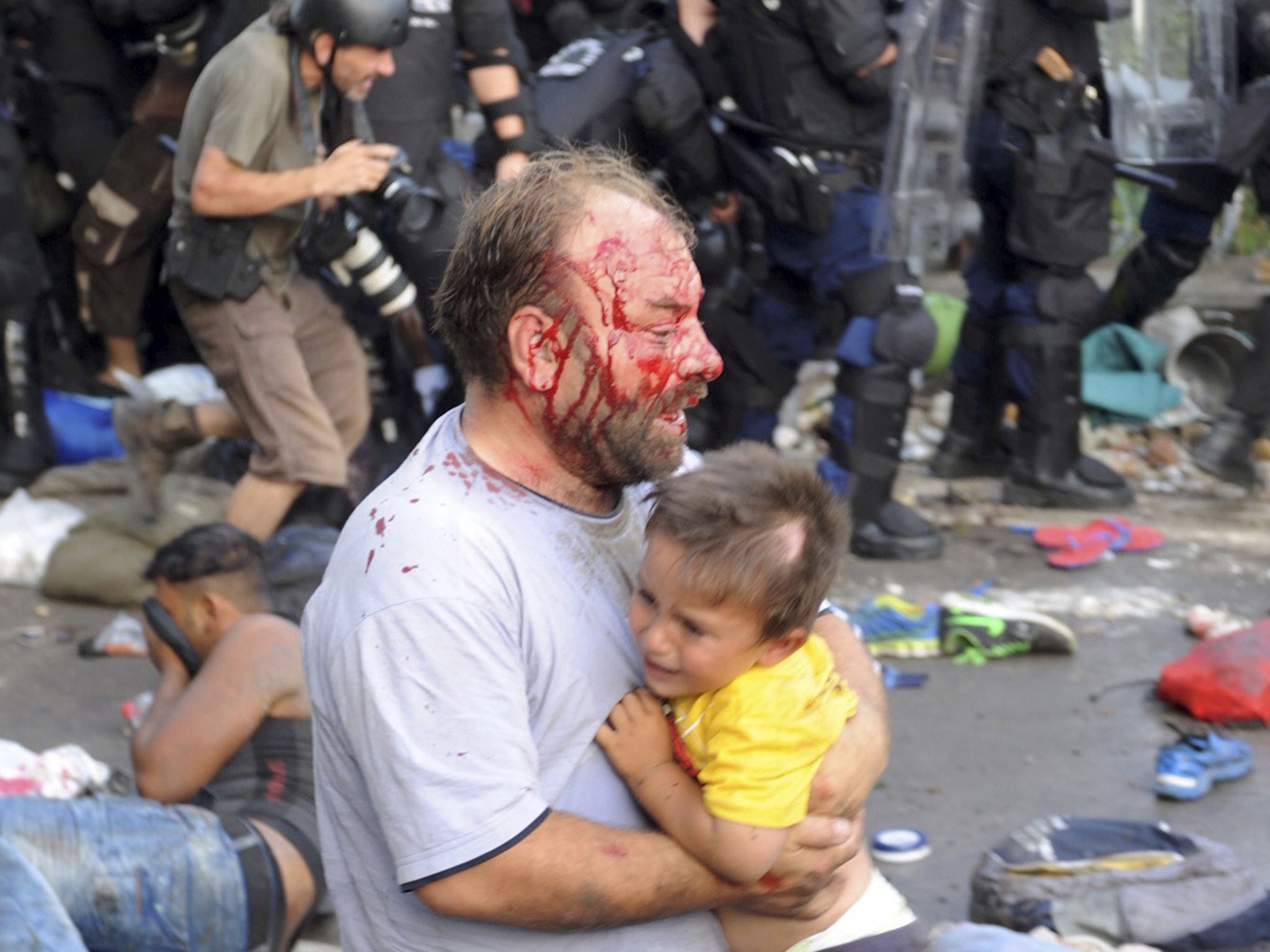Europol report hails 'success' against people smuggling despite more refugees dying than ever before
Humanitarian groups say lack of legal routes to Europe forcing migrants into criminals’ hands

Your support helps us to tell the story
From reproductive rights to climate change to Big Tech, The Independent is on the ground when the story is developing. Whether it's investigating the financials of Elon Musk's pro-Trump PAC or producing our latest documentary, 'The A Word', which shines a light on the American women fighting for reproductive rights, we know how important it is to parse out the facts from the messaging.
At such a critical moment in US history, we need reporters on the ground. Your donation allows us to keep sending journalists to speak to both sides of the story.
The Independent is trusted by Americans across the entire political spectrum. And unlike many other quality news outlets, we choose not to lock Americans out of our reporting and analysis with paywalls. We believe quality journalism should be available to everyone, paid for by those who can afford it.
Your support makes all the difference.A new report claiming European operations to combat people smuggling in the ongoing refugee crisis are a success has been lambasted by aid workers as more migrants die than ever before.
Almost 14,000 asylum seekers have arrived by boat in Europe in the first weeks of 2017, with at least 366 dying at sea and others freezing to death while stranded by border closures.
But a report by EU-wide security agency Europol claimed a year of efforts by the new European Migrant Smuggling Centre (EMSC) was seeing progress.
Dimitris Avramopoulos, the European Commissioner for migration, said the initiative was “successfully fighting, disrupting and apprehending criminal migrant smuggling networks”.
Rob Wainwright, the director of Europol said more than 90 per cent of migrants entering the EU have used smugglers.
“These organised crime networks are taking mass profits from mass migration, and making migrant smuggling the fastest growing criminal sector,” he added.
“To tackle this, we have brought together some of the best investigators in Europe in the EMSC.”
Almost 17,500 suspected migrant smugglers were identified in 2016 according to Europol’s report, which said that 1,150 social media accounts linked to the trade had been flagged alongside 12,000 “operational messages”, as well as 2,500 forged or stolen documents.
More than 500 “vessels of interest” are also being monitored at sea, although no mention was made of “capture and destroy” missions announced by the EU in 2015 taking place.
Humanitarian organisations working on rescue operations in the increasingly deadly Mediterranean and providing aid at transit points across Europe say they have not seen any benefit from anti-smuggling operations.
Aurelie Ponthieu, a humanitarian specialist on displacement at Médecins sans Frontières (MSF), told The Independent that refugees were being driven into criminals’ hands by the lack of safe and legal routes to Europe.
“What are the indicators of success?” she asked. “Looking at the number of smugglers caught is not the indicator we would use when we continue to see people dying – there have never been so many.
“One death is one too many and a policy that contributes to death and violence cannot be labelled as a success.”
More than 5,000 refugees died crossing the Mediterranean in 2016 and the grim record is likely to be surpassed this year, with other migrants dying of hypothermia in extreme winter weather across Europe and being shot in the Balkans.
Ms Ponthieu said border closures along the land route from Greece to Hungary previously used by refugees to reach western Europe had forced asylum seekers to resort to smugglers when they had previously passed through openly.
“The consequences of these journeys are dire and continue deteriorating,” she said.

“If one route closes, another one opens and usually it’s more dangerous…people are escaping conditions that are so terrible they will do anything.”
Research by Save the Children found that the EU-Turkey deal had dramatically reduced the number of refugees journeying over the Aegean Sea to Greece but had given people smugglers “a firmer grip on a hugely profitable business”.
Caroline Anning, a spokesperson for the charity, said Europe’s priority should be providing safe and legal routes such as the Dubs amendment to resettle child refugees, which has been scrapped by the UK.
“Unless vulnerable refugees have safe and legal routes to access asylum, people smugglers will always be in business on the refugee route,” she added.
Europol’s report alluded to the knock-on effect of the crackdowns, noting that boat crossings from North Africa to Europe increased after the EU-Turkey agreement.
“Facilitation by train and by air was increasingly reported; this displacement is believed to be the consequence of the additional controls implemented on land and sea routes,” the report said, adding that the supply of false documents was also rising.

A damning report by the Unravelling the Mediterranean Migration Crisis found European policy has so far been an “absolute failure”, with refugees continuing to use an array of the almost 100 different and constantly evolving routes to reach Europe.
Researchers found that smugglers’ efforts to evade detection by the EUs Operation Sophia was partly responsible for rocketing death rates worsened by a switch from wooden fishing boats and commercial vessels to unseaworthy dinghies that frequently sink and capsize.
British Government efforts have focused on funding increased provision for refugees in countries outside the EU, including Turkey and Libya, to discourage them risking sea journeys.
On Thursday, the Royal Navy ship HMS Echo was among the vessels rescuing more than 1,100 migrants in the Mediterranean Sea in one of the busiest days yet in 2017.
Conservative MP Peter Bone, the former chair of the All Party Parliamentary Group on Human Trafficking, argued that improved provision to keep asylum seekers in Italy and Greece would discourage treacherous crossings.
“It’s making these evil bastards [smugglers] a lot of money and killing people,” he told The Independent.
“What you’ve got to do is stop the crossings by reducing the demand and keep people closer to home. These are real people, this shouldn’t be happening.”
Join our commenting forum
Join thought-provoking conversations, follow other Independent readers and see their replies
Comments